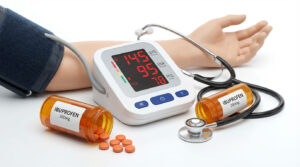What is Growth Hormone Deficiency (GHD)
Growth hormone deficiency (GHD) is a medical condition in which the pituitary gland does not produce enough growth hormone, which is responsible for promoting growth and development in children and adolescents and regulating metabolism in adults. This condition can cause a range of symptoms, including delayed growth and short stature, low energy and fatigue, and poor bone density. In this blog, we will explore the causes, symptoms, diagnosis, and treatment options for growth hormone deficiency. In children, GHD can cause delayed growth and short stature, while in adults, it can cause low energy, increased body fat, and poor bone density.
Read More: Hypopituitarism – Causes, Symptoms, Diagnosis, and Treatment
Why Growth Hormone is Important for children
Growth hormone is essential for healthy growth and development in children and adolescents. It also plays an important role in regulating metabolism in adults, including the breakdown of fats and the maintenance of bone density. Without enough growth hormone, the body may not be able to develop properly and may be at increased risk of certain health problems.
- Growth and Development: during childhood and adolescence. It promotes both growth and development. It promotes the development of bones and other tissues and aids in controlling body fat and muscle mass.
- Bone Health: Growth hormone promotes the mineralization and development of bones, hence maintaining bone health. It also aids
- Controls metabolism: Growth hormone stimulates the breakdown of lipids and the release of glucose from the liver to control metabolism. This supports maintaining healthy amounts of energy and blood sugar.
- Strengthens and encourages the development of muscles: By stimulating their growth and development. Growth hormone also aids in boosting muscle power and endurance.
What are the Causes of Growth Hormone Deficiency/Pituitary Dwarfism in children
Growth hormone deficiency (GHD), also known as pituitary dwarfism, is a disorder that develops when the pituitary gland in the brain is unable to produce adequate growth hormone. There are numerous causes for this, including.
- Growth Hormone production or function is affected by genetic abnormalities.
- Congenital flaws, such as an incorrectly positioned or undeveloped pituitary gland.
- Brain trauma or injury, especially to the pituitary gland.
- Radiation therapy is used to treat tumors or other conditions in the head or neck area.
- Autoimmune disorders that affect the pituitary gland.
What are Signs of Pituitary Dwarfism in Children
The signs and symptoms of GHD can vary depending on the age of the individual and the severity of the deficiency. Some of the most common symptoms include:
- Delayed Growth and Short Stature: One of the most common symptoms of GHD in children is delayed growth and short stature. Children with GHD may not grow at the expected rate, and may be significantly shorter than their peers.
- Low Muscle Mass and Strength: GHD can also cause low muscle mass and strength. Children with GHD may have difficulty building muscle, while adults may experience muscle weakness and fatigue.
- Increased Body Fat: GHD can cause an increase in body fat, particularly around the waist and abdomen. This can increase the risk of developing other health problems, such as heart disease and diabetes.
- Low Energy and Fatigue: People with GHD may experience low energy and fatigue, particularly in the afternoon or evening. This can make it difficult to complete daily activities, and may negatively impact the quality of life.
- Delayed Wound Healing: Growth hormone is important for the healing of wounds and injuries. People with GHD may experience delayed wound healing and may be at increased risk of infection.
- Delayed Sexual Maturity: In children with GHD, the onset of puberty may be delayed. This can cause social and emotional problems, as well as physical problems, such as infertility and impotency.
- Poor Bone Density: Growth hormone is important for the development and maintenance of healthy bones. People with GHD may have poor bone density, which can increase the risk of fractures and other bone problems.
- Increased Risk of Cardiovascular Disease: GHD has been associated with an increased risk of cardiovascular diseases, such as heart attack and stroke. This may be due to the increase in body fat and the decrease in muscle mass that can occur with GHD.
Diagnosis of Growth Hormone Deficiency in children
Diagnosing GHD can be challenging because the symptoms are not always obvious. In some cases, GHD may not be diagnosed until a child’s growth rate has been closely monitored for a period of time. The following methods are typically used to diagnose GHD:
- Physical examination and growth chart analysis
- Blood tests to measure growth hormone levels
- Stimulation tests
The first step in diagnosing GHD is a physical examination and growth chart analysis. The healthcare provider will measure the child’s height, weight, and other physical features to determine if the child’s growth rate is below average. The healthcare provider will also ask about any family history of GHD or other medical conditions.
Blood tests can be used to measure the levels of growth hormones and other hormones in the body. If the levels of growth hormone are low, this can be an indication of GHD.
Stimulation tests are used to measure the body’s ability to produce growth hormones. These tests involve administering a substance that stimulates the pituitary gland to release growth hormone. If the pituitary gland does not release enough growth hormone in response to the stimulation test, this can be an indication of GHD.
Read More: Growth Hormone Tests: What You Need to Know
Treatment Options for Growth Hormone Deficiency in Children
The treatment for GHD is growth hormone replacement therapy. This involves administering synthetic growth hormone to replace the missing hormone in the body. Growth hormone is administered by injection, typically on a daily basis. The dose and frequency of injections will depend on the age of the individual, the severity of the deficiency, and other factors.
- Growth hormone replacement therapy
- Dose and frequency of growth hormone injections
- Monitoring of growth and development
Growth hormone replacement therapy can help to stimulate growth and development in children and adolescents with GHD. In adults, it can help to improve muscle mass and bone density, as well as reduce body fat. Growth hormone replacement therapy is typically administered by injection, either daily or several times a week.
The dose and frequency of growth hormone injections will depend on the age of the individual and the severity of the deficiency. Children and adolescents may require higher doses of growth hormone than adults. The healthcare provider will monitor the individual’s growth rate and adjust the dose as needed.
Individuals receiving growth hormone replacement therapy will be closely monitored to ensure that their growth and development is progressing as expected. Regular check-ups with a healthcare provider will be necessary to monitor the individual’s height, weight, and other physical features.
Why Early Diagnosis and Treatment are Vital
Early diagnosis and treatment of GHD in children are crucial to ensure that affected individuals can achieve their full growth potential and lead healthy, productive lives. Children with GHD who are not treated may experience permanent growth failure, which can have lasting effects on their physical, emotional, and social well-being. In adults, untreated GHD can lead to a range of health problems, including decreased muscle mass, bone density, and quality of life. Early detection and treatment of GHD can help prevent these negative outcomes and improve long-term health outcomes.
BOOK GROWTH HORMONE TEST TODAY!







